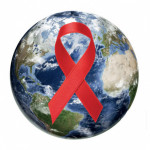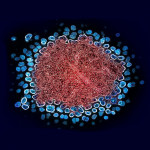Among people in medical care for HIV, depression is associated with worse outcomes.
Publishing their findings in JAMA Psychiatry, researchers conducted an observational clinical cohort study of 5,927 people with HIV who were engaged in primary care for the virus and who received at least two assessments of the severity of their depression. The cohort members received care at six sites across the United States between 2005 and 2015.
Five thousand of the cohort members were men, 926 were women and one person was intersex. The group had a median age of 44 and spent a median 14 percent of their follow-up time with depression.
During a cumulative 10,767 years of follow-up, the cohort members missed 10,361 of 55,040 (18.8 percent) of their scheduled clinic visits for HIV care. Additionally, 6,191 of 28,455 (21.8 percent) of their viral load tests had a detectable result. And 15 cohort members died per 1,000 cumulative years of follow-up.
The researchers found that each 25 percent increase in time spent with depression during the study’s follow-up period was associated with an 8 percent increase in the likelihood of missing a clinic appointment, a 5 percent increase in the risk of having a detectable viral load and a 19 percent increase in the risk of death.
These estimates suggested that compared with those who spent no follow-up time with depression, those who spent the entire time depressed had a 37 percent greater likelihood of missing appointments, a 23 percent increased risk of having a detectable viral load and a 2.02-fold increased risk of death.
To read the study abstract, click here.







Comments
Comments